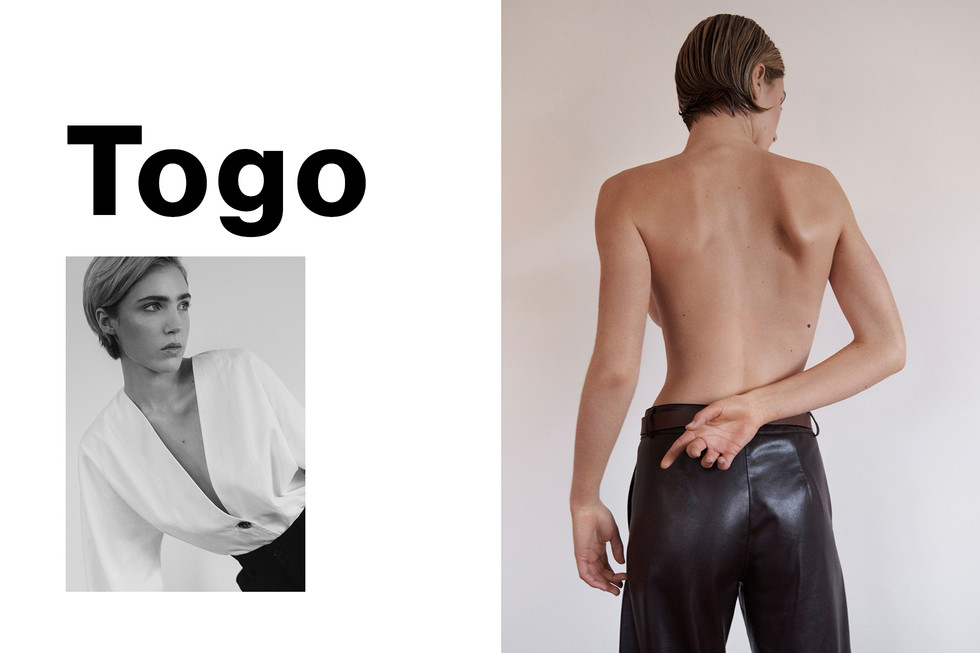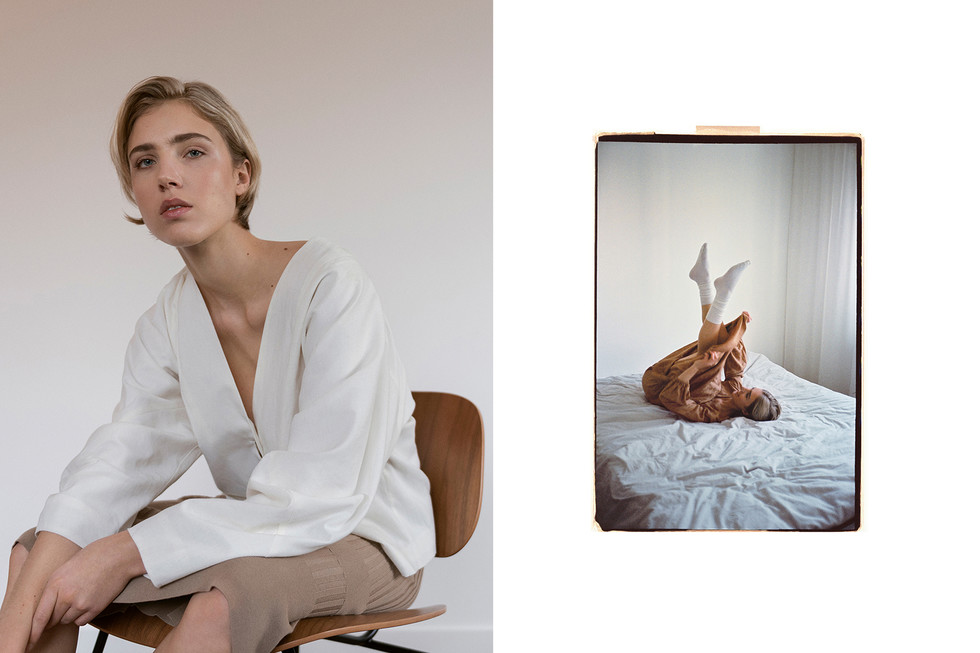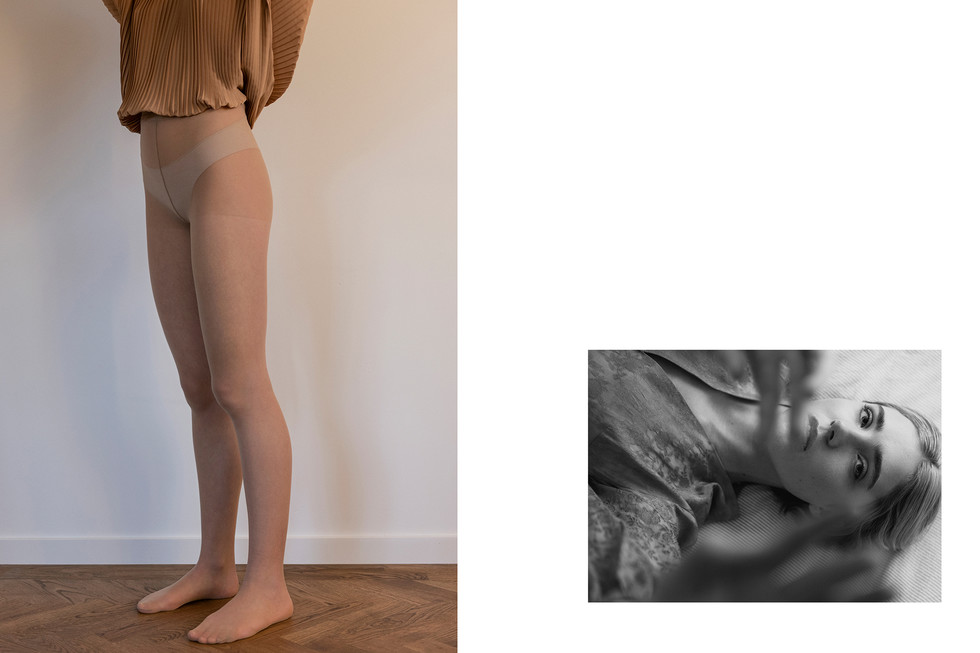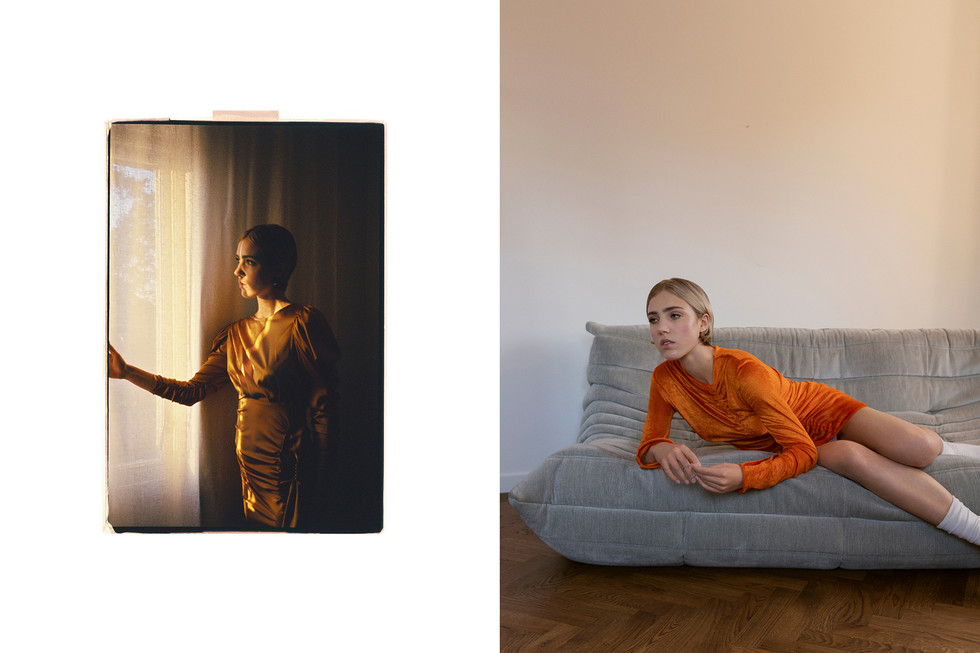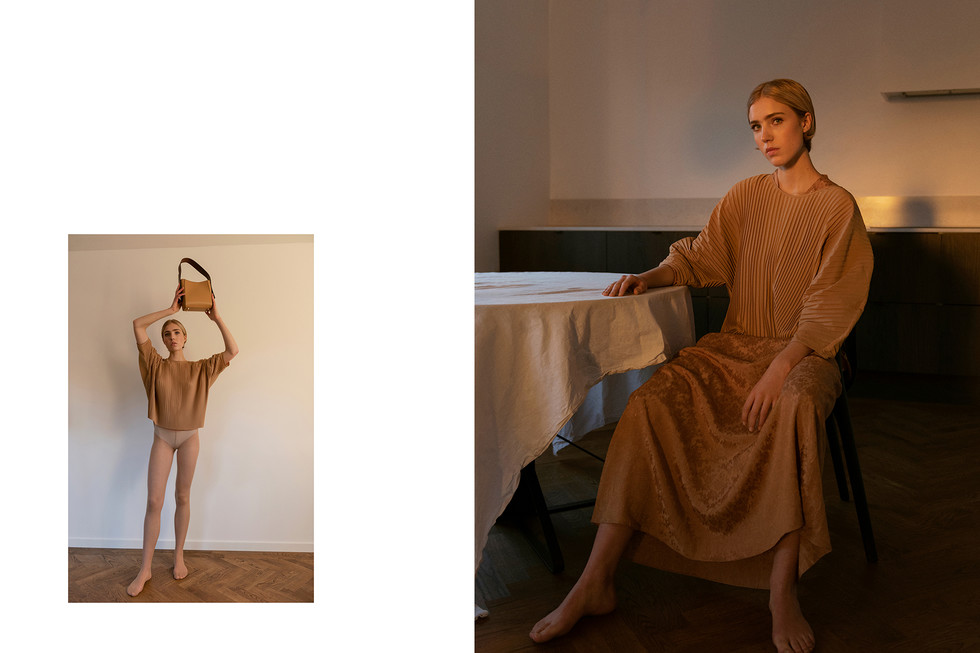The political-religious state Caliphate emerged around the 6th century and ceased to exist as a political institution with the Mongol destruction of Bagdad in 1258. On 8 April 2013 a formation of Isis was announced. In June 2014, after it seized Mosul, Isis proclaimed its ‘caliphate’. By the end of that year the self-declared state already stretched across two countries, Syria and Iraq. Driven by the romantic idea of the Islamic state raising again, hundreds of young women left their homes in western countries to join Islamic fighters in the Middle East. Pervin, a character of Gizem Erdogan in the series ‘Caliphate’, is one of those girls, who is stuck in Raqqa, where her husband Husam, played by Amed Bozan, has joined Isis. They travelled there together but now she is on her own, face to face with her fears and horrors, trying to find her way back to life. Fatima, performed by Aliette Opheim, is a Swedish-Security-Service agent, who through a phone call finds out about Pervin and a terror attack that is to be conducted in Sweden. Pervin fights for her daughter’s life, while Fatima fights for her credibility but these two diametrically different purposes merge into one story of love, fail, tragedy, and opulence of human soul.
Depicting such a sensitive and highly political context, the drama is about the essence of human life with all what it means - love and betrayal, lies and hopes, advantages and pitfalls. It tells a story of social inconsistency, which could, if neglected, lead to a disaster of a whole nation, a county, and the world. Each catastrophe does not appear all of a sudden but precedes by a long chain of causalities. ‘Caliphate’ explores this ideas of a disaster starting from the end and meticulously analysing the whole process through the lens of the social structure. Being forced into a state of empathy, while watching Husam flouncing between love and faith, you might get furious and feel betrayed. However, soon after you discover that ability to see a part of human nature in everyone — no matter what — is a vitally essential quality to possess.
Odalisque Magazine met Gizem Erdogan and Aliette Opheim to speak about their dramatic experience of ‘Caliphate’. A good series is not merely about a good script, a famous film director or a great acting. It is about creating a symbiosis of people and details, where everyone and everything makes sense in connection with the storytelling. Film is about letting a story penetrate your ontological borders, clash with your moral principles and betray your prejudices. It is about letting you manipulate yourself outside the spiritual comfort zone, question your existential affirmations, and, finally, make you feel poetic about it. This is ‘Caliphate’.
How did you end up being an actress and what does it mean for you?
Aliette: For me it is about storytelling. There has always been a little storyteller in me. I wanted to be a writer when I was little, later I wanted to become an archeologist. Obviously, I have a fascination for narratives in different ways and in some way, I have actually been able to become both a writer and an archeologist. For that reason, acting for me is about bringing forward a story and narrate this by embodying the latter. I guess, I have some kind of predilection for it. It has become my tool for self-expression.
Gizem: I am enchanted by a fairytale and opportunity to be able to tell this fairytale. My mind is preoccupied with fairytales that have never been told. When it all began, I used it as a communication instrument for something I was beholding. When I, as a child played theatre, I used to scrutinise the adults around me. It made me discover that they were quite weird doing strange things, such as saying things they didn’t really mean. The aspect of manipulation in it has always been the subject of my interest.
Aliette: It is also about imitation by penetrating someone else’s body in order to understand the nature of that person. What you are actually doing is an expansion of your emphatic side into the other being. I used to imitate people but only when I were on a safe ground without challenging myself out to the limelight. I was surrounded by a phantasy world that I created for myself. While reading, I also created stories between the lines.
Gizem: I love listening to other actors talking about their first acting experience, because often you see it right there, when the person only was five years old. Ostensibly, it is in many ways about playing. I think, some part of me would simply succumb if I had not been given a chance to play. While playing, we objectify our dreams and nightmares. It is about our ontology, I think, that has always been there and included the aspect of acting and playing.
How did you find out about the production?
Gizem: At some party I met my friend Amed Bozan, who plays my husband in the series, and he told me that he was going to play a role in an exciting TV series. I tried to find out more about it and a couple of months later the casting side contacted me.
Aliette: For me it was pretty similar. I also had some contact with Goran, because we belonged to the same agency. I knew he had this project and we briefly talked about it. He saw me as Fatima in the project.
How did you work with your particular character and what did you bring in from your own world?
Aliette: It is always different. Therefore, it is difficult to exactly articulate how I work with a particular role. It is a process that happens sort of naturally and starts already when I read a script for the first time. I observe my first impression thinking about my ideas concerning the character, the first scene that I should play and how I would do it. Certainly, you need more work to understand and to investigate the character, the story as such. However, often I almost from the beginning know who my character is, when the script is skilfully written. How the scenes should be played I have no idea at first and I do not want to think about before I am there, playing. In other words, I do not think I have yet figured out what my algorithm of preparing for a role is. It might require a few roles of me to realise what and how it is happening. For ‘Caliphate’ I had meetings with the Swedish Security Service and received firearms training. I had to wear a belt and uniform and to become a part of it. The costume I had to wear meant a lot, it was a part of my character and I had to learn how to wear it as the character would. My body changed and my gait as well.
Gizem: For me it started with a research, where I read a lot about young girls and boys who travelled to Syria. I read both nonfiction and fiction literature in the field, watched documentaries. I also spoke a lot with Goran and especially with Amed because we had many scenes together to perform. I cannot tell you how my research affected my character but the information I had taken part of, stayed with me during the working process. I tried to mentally approach the situation that I had to live through in the series, in my own way. I could clearly see my character when we came to Jordan. It is a collective process, because the most of the character appears when you are there, seeing everything with your own eyes. You, together with other actors and actresses, the film director, photographers, light engineers and many others, create the character there and then.
Aliette: Our last scene was actually the first one that we had to perform on our first day of filming. When I saw agenda, I got really angry. Later I realised that it was very intelligent to do it that way. I had no idea how to play it, I knew nothing and therefore, the only solution was to survive the scene. It took a couple of takes before we actually had it. Then I knew where to go — it became my strategy. Goran kind of threw us out of the frying pan into the fire but the result turned out to be great. It is his method.
Did Goran Kapitanovic push you during challenging episodes? If so, how?
Gizem: I would say that we encouraged each other by driving each other to madness. Sometimes we could not find a proper solution, sometimes the acting was bad, making Goran furious. Overall, it was a great induction of us all and for all of us. I think, it would have been worse if we had not sparked each other in any destructive ways, had not gotten mad and had not been near to break down.
Aliette: I had a scene with Goran, where we ended up screaming at each other, what also made me accomplish the scene I needed. Finally he burst out, “Great! This is how you play it! Play it!” It has also brought us as a group closer to each other, making us abandon the rules, which usually help keep social distance, and giving us more confidence. It creates a certain intimacy that reminds of a long-term relationship, where you can sort of predict each other.
What was the biggest challenge in your character? In the production in general?
Aliette: Speaking of the project, the biggest challenge was to find a balance in the storytelling for such a sensitive subject that it covers. In my role a hard task was my telephone conversations, where I sometimes had Goran on the other end or no one at all. My objective was to persuade Pervin to act, to find a vein in it and make it nuanced. It was a challenge. Finally, I pretended as she was my boyfriend who suddenly stopped calling and then I could solve it. I knew how to play these scenes.
Gizem: Some scenes were especially challenging such as our quarrels with Amed. The difficulty was to make it real, to find a complexity in it, forcing us to start from the beginning a number of times.
Who was the consultant behind the scenes played in the Syrian context? How did you make it authentic for yourself?
Gizem: The brain behind is the artistic team. To be there physically and film creates a certain dimension that is arduous to construct in a film studio. It would never work. The environment, flavours and light altogether create a feeling of authenticity. Jordan is the Middle East, what reminds of the atmosphere in Syria and even in Turkey, where I come from. The region is the key here and the drama takes place in the right context to transmit the feeling. Jonas Alarik’s photography takes it even further, creating a poetic tier.
Aliette: As you say, all these aspects are of high significance. The light, odours and all other details. Even though spectators cannot see all that, they can see us in the atmospherics of it.
Gizem: I am a detail oriented person and during the filming process I could daily hear some distant Qu'ran chant recital from a mosque. It affected my body what influenced the whole process. All the energy, all the odours and flavours, all the sounds - they have an impact on us and on the scenes as a whole. It is difficult to fake. There is a certain artistic level in “Caliphate” that makes a poetic statement with something courageous in it such as working with minimal amount of light and having the camera follow us dancing. It is an interplay that sort of ties together all the artists behind the process.
Aliette: It takes a great photographer. Jonas Alarik is very skilled photographer and he participates in some episodes together with us, living it. And sometimes it is just enough to be there, standing quiet. This is what differs our project from traditional television. The camera becomes an important actor here.
Did you interact with the locals during the filming period?
Aliette: We went out eating to different local restaurants and then we could talk to some people there. Once we were filming in a desert and suddenly we saw a caravan with beduins approaching. It was the landowner - a clan leader, wearing a white rock, long nails and rings. They set up a tent for a repast and then the whole village came there. Everyone was welcome and we ended up next to a granny, who was more than a hundred years old, skilfully working through her pita bread. The clan leader was very proud of being able to provide a meal for the whole village.
Gizem: I loved filming in the Middle East and I wish I could do it again. Being from Turkey, I experienced a huge feeling of belonging, overwhelmed by being there and the Jordanian team that we worked with felt very close.
Did you participate in the creating process of your image or was it already stated in the script?
Gizem: I was participating in the process. Since I wore a lot of niqab in the series, we had to try different fabrics, getting the eyes slightly visible. The clothes are very important because it constitutes a character. I thought a lot about that the year was 2015 and that the clothes in the scenes needed to correspond. There was a pair of black sneakers, and we were concerned with whether this model existed in 2014, when Pervin left for Syria. We also ponder a lot about style in general, what style she had before leaving her previous life.
Aliette: I had a meeting with our costume designer Linn Eklund and spoke to Goran. Often a costume designer makes a suggestion for different looks, enclosing reference images. It is about a collaboration and mutual discussion. Should Fatima be more French with reference to certain brands but at the same time very practical. Should she have any jewellery or not. We went for a gold necklace that she had during her whole life. Long nails was not an alternative to add to the image. A costume tells so much about its character. We had hardly any makeup with exception for eyebrows. It is a hard-working woman who does not pay any attention to makeup.
Gizem: Nothing should be random when it comes to film costumes. If something is wrong, it could significantly affect the poetic side. Therefore, discussions and disagreements are normal in such a case. It has to be done properly. Why to use a glittering makeup for an actress playing a drug addict? American productions make a great impression on me with their level of proficiency when it comes to film costumes. Your own style preferences are not important here and should be abandoned. It is all about the storytelling and you narrate it through your acting and costumes.
What did you like respectively dislike in your character?
Gizem: I do not really like my character. What I like about her is her tenderness with the baby. She is very inventive though, solving a number of extremely critical situations. She is very sensitive person.
Aliette: Fatima lives on the edge and really needs to take it easy. She dares take place and this is something I need to learn from her.
What would your next project be about if you could choose?
Gizem: I would like to play in a fable, depicting Sweden under the 18th century with all the odours and grime, not like it is usually framed into something luxurious but an authentic one.
Aliette: I think, I would like to play a queen. Queen Christina of Sweden or Ulrica Eleanor.


